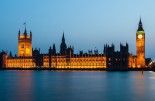RBC BlueBay: Fed rates may have peaked
RBC BlueBay: Fed rates may have peaked

RBC BlueBay expects Fed rates to have reached their peak and ECB rates not hiking further.
‘We are inclined to see softer economic data and consequently believe that we may now have seen Fed rates peak,’ says Mark Dowding, BlueBay CIO, RBC BlueBay Asset Management, today. ‘However, a tightening bias remains in place, and we continue to think that it will be premature to look for policy to ease before the second half of 2024.
In light of this view on the US, we continue to look at US rates trades in more of a tactical than a structural light for the time being. For now, the front end of the curve seems to be relatively anchored, with more volatility expressed further out the curve. We sense that curve steepening trades have been very consensual, which has led us to favour longer-dated Treasuries on a contrarian basis over the short term. Nevertheless, we find ourselves more trying to position within a trading range, on the belief that it is not the right time to be taking risk on a longer-term basis.
Europe
'In Europe,' Dowding continues, 'economic data seems to be pointing towards softening on a more unambiguous basis. Business sentiment readings continue to slide and in Germany, this week’s data have shown marked weakness in retail sales and higher unemployment. We don’t see the ECB hiking further, but as with the Fed, we still see rate cuts as some way off in the distance. It will take time for inflation to fall to levels where the ECB is confident to adjust its stance.
However, we would also note that the pace of balance sheet contraction in the Eurozone is more rapid than in the US. In this context, the ECB balance sheet has already fallen from Euro 8.7 trillion to 7 trillion and will drop to 6 trillion next year. Noting this, we don’t think it will be necessary to end PEPP reinvestments earlier than December 2024 and there may be a case to extend these beyond this point.'
Japan
'Meanwhile in Japan, the economic outlook is very different. Economic activity is being supported by stimulative monetary and fiscal policy. Meanwhile inflation continues to print above forecasts, causing policymakers to scramble to revise projections higher.
In this light, it has appeared that the Bank of Japan has been making a policy mistake by keeping policy too accommodative for too long. It seems that Ueda and colleagues have overlooked how real interest rates have been more negative in 2023 and that attempts to cap yields have seen an expansion of asset purchases, which have continued to swell the balance sheet. Consequently, market pressure has been building for higher yields and this continued in the past week, notwithstanding lower yields elsewhere.’










